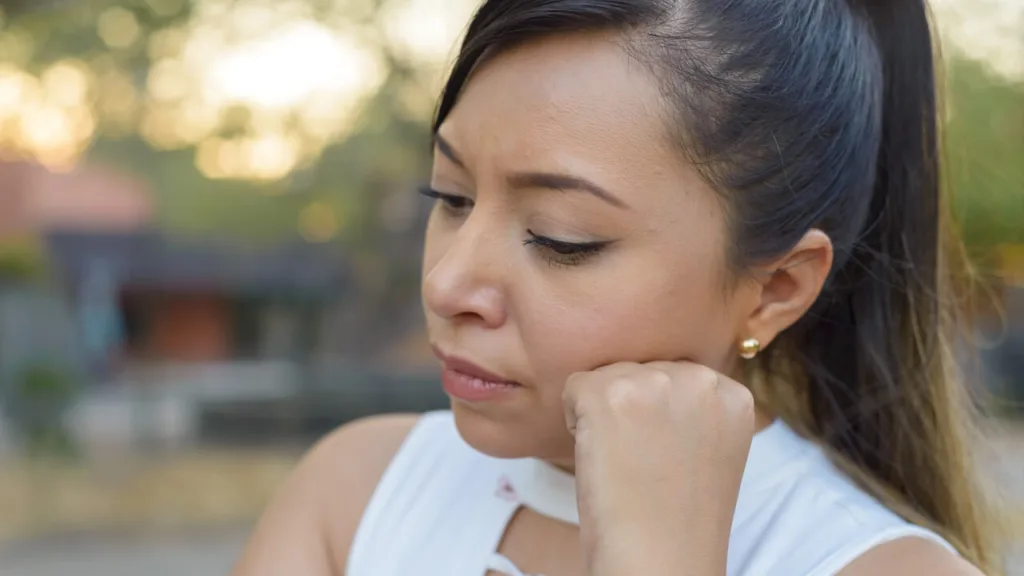Why Is the U Visa Denied in 2025? 5 Key Reasons

Receiving the notice: U Visa Denied, can feel like a crushing blow to victims of crime who are seeking protection and a path to stability in the U.S. U visas protect victims of certain crimes as long as they cooperate with the appropriate authorities, unless they are minors.
Sadly, many immigrants are victims of crimes, and the number of them who apply for a U-visa is greater than the system’s processing time. In 2023, there were 326,121 U-Visa pending applications. In the last couple of years, the numbers have not dwindled. Some applications for U-visas might take years. That’s why having experienced legal support is essential to maximize your chances of receiving this legal protection.
This guide breaks down the top 5 reasons for U Visa denials and how to strengthen your application.
Essential Requirements for the U Visa
The U Visa is a lifeline for victims of certain crimes, like domestic violence, trafficking, or sexual assault, who cooperate with law enforcement. This is a legal protection and path towards legal migration status in the United States for victims of grave crimes.
To qualify for a U-Visa, you must:
- Be a victim of a qualifying crime.
- Have suffered physical or mental harm.
- Possess information about the crime.
- Be helpful, or willing to help, in the investigation or prosecution; Unless the victim is under the age of 16 or undergoes severe post-traumatic stress.
- Show that the crime occurred in the U.S. or violated U.S. laws.
- Be admissible to the U.S. or file a waiver (Form I-192). To show that they are admissible, applicants have to prove they have not committed grave crimes or immigration fraud.
If your migration status and your security depend on this process, make sure to consult a trusted immigration lawyer for a confidential consultation.
Common Crimes That Qualify for a U Visa
The U Visa was created to protect victims of serious crimes in the U.S. or crimes that violate U.S. laws. To qualify, the crime must have caused physical or emotional harm and been reported to authorities. Here are some qualifying crimes:
- Domestic violence: Physical, emotional, or sexual abuse by someone close to you, like a partner or family member.
- Human trafficking: Exploitation through force, fraud, or coercion. For example, forced labor or sex trafficking.
- Sexual assault: Any non-consensual sexual act, including rape or unwanted touching.
- Kidnapping and abduction: Being held against your will through threats or violence.
- Extortion: Being forced to give money, property, or favors under threat of harm.
USCIS also recognizes attempted crimes, conspiracies, or solicitations to commit these offenses. For the full list of qualifying crimes, check the official USCIS guidelines.
If you were a victim of any of these crimes and cooperated with law enforcement, you may be eligible for a U Visa, even if no arrest was made. Even if your crime is not on the list, you might be eligible for a U-visa. Contact your trusted immigration attorney to get a confidential consultation. It might also be advantageous to you to contact your lawyer before contacting the police; this way, you will know your rights, how to protect yourself, and what evidence will help your U-visa case.
5 Reasons Why the U Visa Is Denied and How to Avoid Them
Sometimes U-visas are denied because the application contains errors, or sufficient proof of the crime or cooperation with law enforcement was not provided. These are some of the most common causes for U-Visa denials:
1. Lack of Proof of Cooperation with Authorities
One of the main reasons for receiving a U Visa denied notification is failing to prove you cooperated with law enforcement. USCIS requires a signed I-918B petition from a qualifying agency, like police or prosecutors. Without it, your case is likely dead on arrival.
How to fix it:
- Contact the agency handling your case and request the certification.
- If they refuse, seek legal help or other agencies that qualify.
- Submit proof of your cooperation, like emails, case numbers, or witness statements.
The team at the Moumita Rahman—Immigration Attorneys, has ample experience dealing with competent agencies to ensure the application has the appropriate agency backing.
2. Insufficient Evidence of Harm
One of the top reasons for a denied U Visa is failing to prove you suffered significant physical or mental harm from the crime. USCIS requires solid documentation. Your personal statement alone won’t be enough.
Why This Leads to Denial
Many applicants submit only a handwritten letter describing their trauma, like a sexual assault survivor who shared their story but didn’t include medical records or therapist reports. While their experience was real, USCIS often dismisses such cases due to a lack of objective evidence.
How to Strengthen Your Case
To avoid a U Visa denial, include:
- Medical or psychological reports, such as doctor’s notes, hospital records, therapist evaluations, etc.
- Photos of injuries, including bruises, scars, or other physical evidence.
- Sworn statements from therapists, counselors, family, or friends who witnessed the harm.
- Letters from shelters or support centers, if you sought help after the crime.
If you are able, pair every detail in your personal statement with corresponding evidence. For example: “The abuser broke my arm.” Include hospital records and X-rays.
3. Inadmissibility Issues
Even if you meet all U Visa requirements, your application can still be denied if you have certain immigration or criminal issues. Common red flags include:
- Illegal entry: Entering the U.S. without inspection.
- Previous deportation orders.
- Criminal convictions
However, if this is your case, don´t be discouraged. You can submit a waiver through the form I-192. To overcome these hurdles, you’ll need to prove:
- Evidence of rehabilitation. For example, completed drug treatment for DUI, community service, etc.
- Humanitarian need. You need to show how denial would severely impact you or your family.
- Public benefit. Prove how your case serves U.S. interests.
If you have a criminal record, without this waiver, your U Visa will likely be denied, even if you’re a perfect candidate otherwise. If you’ve ever had any immigration violations or arrests, even if charges were dropped, consult an attorney before applying. What you don’t disclose can hurt your case more than what you do. Inadmissibility doesn’t mean you’re permanently barred; it just means you need the right legal strategy. Many applicants with far worse histories have gotten approvals by properly addressing these issues.
4. The Crime Doesn’t Qualify for a U Visa
One of the most straightforward reasons for a U Visa denial is when the crime you suffered doesn’t appear on USCIS’s official list of qualifying offenses. This often happens with:
- Verbal harassment without physical contact.
- Non-violent theft, like pickpocketing.
- Incidents that were never reported or prosecuted.
Even if you experienced real harm, USCIS will deny your U Visa if the crime itself doesn’t meet their strict legal criteria.
How to Avoid This Mistake:
- Check the Official List
- Review USCIS’s qualifying crimes before applying.
- For example, domestic violence qualifies, but verbal arguments, without threats or physical harm, usually don’t.
- No Criminal Charges? Strengthen Your Case
- If the crime wasn’t prosecuted, include:
- Police reports, even if no arrest was made.
- Witness statements
- Medical records proving harm
- For example, a victim of workplace threats submitted a notarized letter from coworkers and therapist notes to prove psychological harm.
- If the crime wasn’t prosecuted, include:
- Explore Alternative Angles
- Some crimes might qualify if they were:
- Attempted
- Conspiracy
- Solicitation
- Some crimes might qualify if they were:
- When in Doubt, Consult a Lawyer
- If the crime seems borderline, for example, financial abuse, an attorney can argue its connection to a qualifying offense.
If you are wondering, what happens if my U visa is denied for this reason? You can reapply if you find new evidence linking the crime to a qualifying offense. In some cases, you might qualify for other visas, like VAWA for domestic abuse victims.
5. Contradictions or Weak Narrative
Your U Visa application can be rejected instantly if USCIS spots inconsistencies between your current story and past statements in asylum applications, TPS filings, or even ICE interviews.
For example, if an applicant claimed threats in their asylum case but later reported physical violence in their U Visa application without explaining the escalation. USCIS can flag the discrepancy and deny the petition.
How to Avoid Self-Sabotaging Your Case
- Audit Your Paper Trail
- Review every immigration filing you’ve ever submitted
- Note any differences in dates, events, or details
- Prepare explanations for discrepancies before applying
- Maintain Core Consistency
- If new details emerge, explicitly state what happened. For example, “In my 2020 asylum application, I omitted the physical abuse due to fear or shame. I now disclose the full truth with supporting evidence.”
- Never Use Google Translate
- USCIS officers scrutinize language nuances.
- Hire a certified translator for statements in other languages or work with an experienced immigration lawyer.
- Legal representation
- Attorneys spot red flags you’ll miss:
- Unintentional contradictions
- Legally vague phrasing
- Missing links between crime and harm
- Attorneys spot red flags you’ll miss:
A single inconsistent date or mistranslated phrase can:
- Trigger fraud suspicions
- Undermine credible evidence
- Sink an otherwise qualified application
Create a master timeline of events before drafting your statement. Cross-check every detail against prior filings.
What happens if my U visa application is denied?
A denial notice doesn’t mean the end of your case. Many applicants successfully overturn rejections by acting quickly and strategically. Here’s your step-by-step survival guide:
Understand Your Denial Notice
USCIS sends two critical documents:
- NOA (Notice of Action), U visa denial
- What it means: Your application was rejected.
- Good news: You may still appeal or reopen the case if you have new evidence or can prove USCIS made an error.
- RFE (Request for Evidence)
- What it means: Your case is pending a decision, not denied. USCIS needs more proof.
- Good news: You need to provide more evidence to sustain your claim. Sometimes this evidence can be obtained through collaboration with law enforcement agencies or prosecutors, or by conducting research or obtaining testimony.
In both cases, having the help of a trusted legal attorney can help you understand the next steps to take. Never refile the exact same application; USCIS will deny it again. Fix the flaws first and obtain legal counsel.
Your Legal Options After a U Visa Denial
Getting your U Visa denied isn’t the end; it’s often just a detour. These are some of the paths forward you have after your U visa denial:
- Appeal to AAO, Administrative Appeals Office
- If you believe the USCIS made a legal mistake.
- Make sure you consult an immigration attorney before submitting your appeal.
- Reapply Completely
- You must fix what caused the first denial.
- This option is stronger if you add new evidence or certifications of collaboration with law enforcement agencies.
U Visa Denied? You’re Not Alone, We Can Help
A denial doesn’t have to be the end of your journey. Many applicants overcome rejections every day by fixing missing evidence, strengthening their case, or exploring alternative options. The Moumita Rahman—Immigration Attorneys is here to help you. We can:
- Confidentially evaluate your claim.
- Explore all options, including strengthening your application or applying through another visa program.
- Negotiate with law enforcement agencies to obtain evidence and their signature for your application.
- Help you rewrite your statements.
- Apply for waivers if you have a criminal record.
If you receive a U Visa denied notice, you still have options. Our attorneys have experience turning denials into approvals. Don’t let one “no” be the final answer. Contact Moumita Rahman—Immigration Attorneys for your confidential case evaluation. If your future plans and security depend on this application, don´t risk it; get the best and most trusted representation available. If you have been a victim of the applicable violent crimes, you deserve to be protected.



